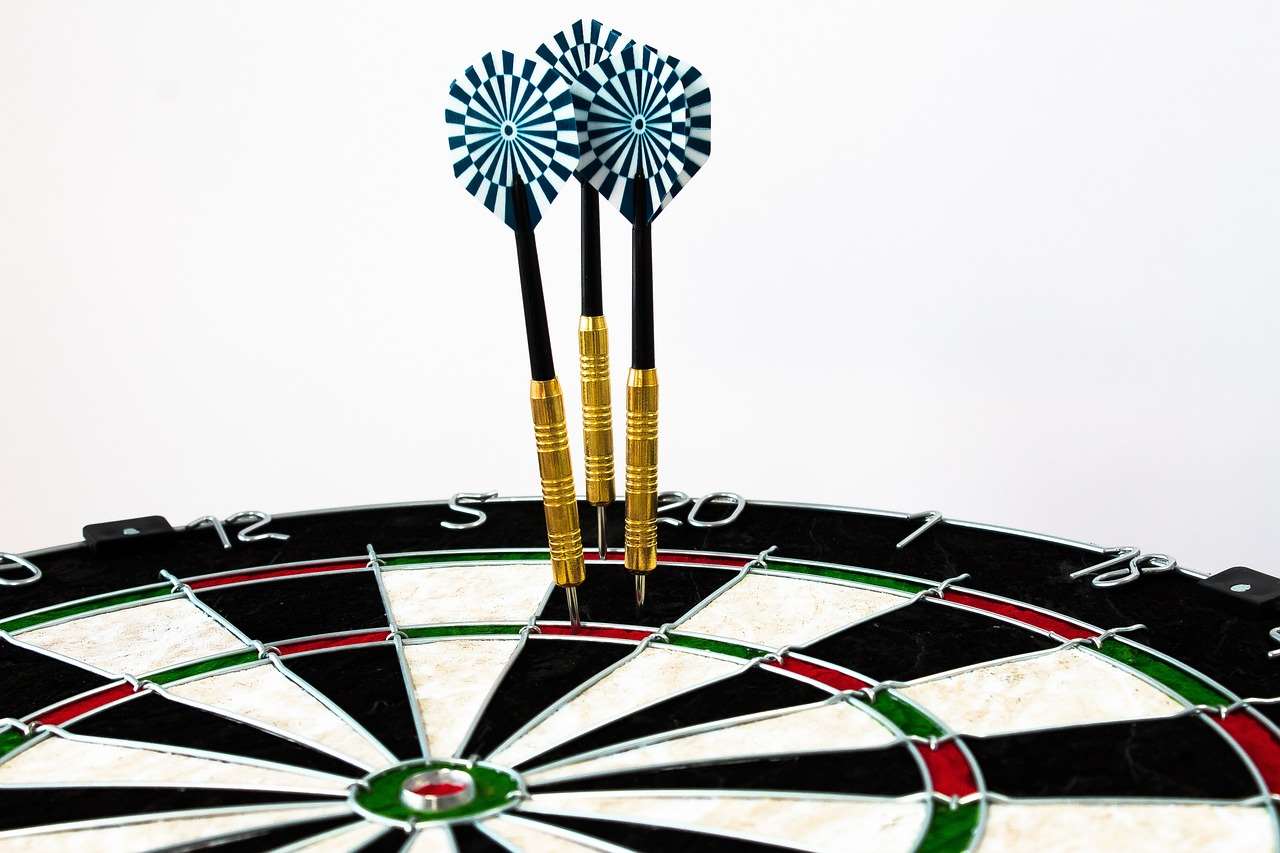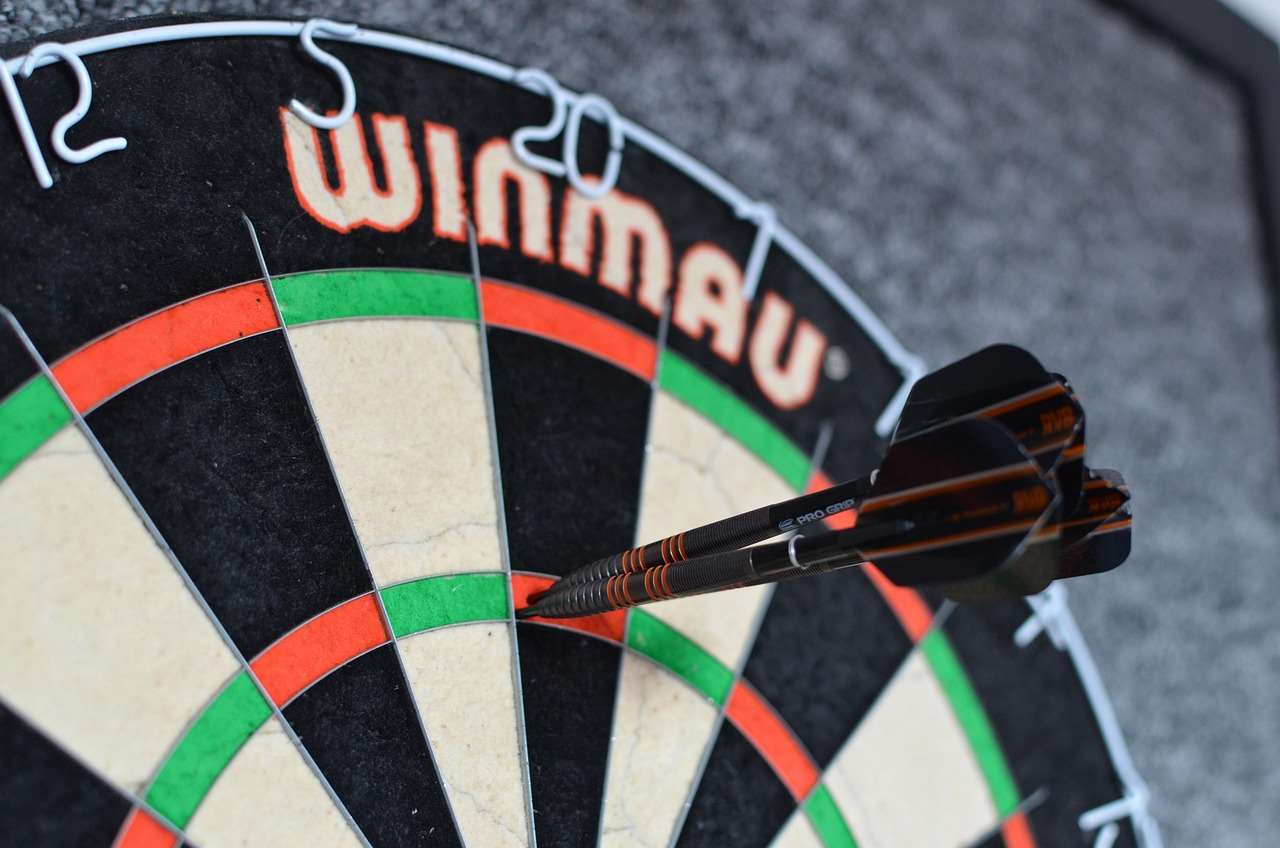Using player data correctly for betting is crucial for making informed decisions and increasing your chances of success. This article will explore the essential data points, how to analyze them effectively, and common pitfalls to avoid when leveraging player data in your betting strategy.
⚠️ Still Using Pen & Paper (or a Chalkboard)?! ⚠️
Step into the future! The Dart Counter App handles all the scoring, suggests checkouts, and tracks your stats automatically. It's easier than you think!
Try the Smart Dart Counter App FREE!Ready for an upgrade? Click above!
Understanding the Basics of Player Data for Betting
Before diving into complex analytics, it’s essential to understand the fundamental types of player data available and how they can be applied. This information forms the bedrock of any successful betting strategy.
- Historical Performance Data: This includes past results, win/loss records, and performance metrics over an extended period.
- Recent Form: Analyzing recent matches or games can provide insights into a player’s current condition and momentum. Checking Recent Form Impact Darts Betting is crucial before making any betting decisions.
- Head-to-Head Records: Understanding how players perform against specific opponents is invaluable, as certain matchups can significantly influence outcomes.
- Specific Skill Statistics: Depending on the sport, this could include statistics like goals scored, assists, batting average, or completion percentage.
Mastering these basics allows you to begin using player data correctly for betting, transforming raw numbers into actionable insights.

Key Statistics to Consider
Not all data is created equal. Some statistics are more predictive of future performance than others. Here are some key statistics to focus on:
- Points Per Game (PPG): In many sports, PPG is a straightforward indicator of a player’s offensive contribution.
- Field Goal Percentage (FG%): This measures shooting accuracy and efficiency.
- Assist-to-Turnover Ratio: In team sports, this reflects a player’s playmaking ability and decision-making.
- Strikeout-to-Walk Ratio (K/BB): In baseball, this is a strong indicator of pitching control and effectiveness.
Remember to tailor your focus to the specific sport you are betting on. Understanding which stats are most relevant is paramount.
Sport-Specific Data Considerations
The relevance of certain statistics can vary dramatically depending on the sport. For example, in darts, stats like player average score analysis darts and 180s per leg are essential indicators of performance. In contrast, these metrics are completely irrelevant in a sport like basketball.
For darts betting, you should look at Player Statistics For Darts Betting. Also consider 180s Per Leg Stats For Betting.
How to Analyze Player Data Effectively
Gathering data is only half the battle; you must also know how to interpret it effectively. Here are some tips for proper analysis:
- Consider Sample Size: A small sample size can lead to misleading conclusions. Ensure you are analyzing data over a sufficient period.
- Context Matters: Factors like injuries, changes in team composition, and playing conditions can all influence performance.
- Look for Trends: Identify patterns and trends in the data that may indicate a player’s trajectory.
- Compare Players: Benchmarking players against each other can reveal relative strengths and weaknesses.

The Importance of Recent Form and Momentum
While historical data provides a valuable foundation, recent form is often a more accurate predictor of immediate performance. A player on a hot streak is more likely to perform well than a player in a slump, even if their long-term statistics are similar. Many bettors overlook how to analyze dart player form when making a bet.
Analyzing Recent Performance
- Track Recent Results: Monitor a player’s performance over the past few games or matches.
- Identify Key Metrics: Focus on the statistics that are most indicative of performance in the short term.
- Consider Opponent Strength: A win against a weaker opponent may be less significant than a loss against a strong opponent.
Remember, using player data correctly for betting involves understanding the interplay between long-term trends and short-term fluctuations.
Head-to-Head Statistics and Matchup Analysis
Some players consistently perform well against certain opponents, while struggling against others. Analyzing head-to-head statistics can reveal these patterns and provide valuable insights. Head to Head Stats Darts Betting provide this information.
- Identify Strengths and Weaknesses: Determine which players have a clear advantage in specific matchups.
- Consider Playing Style: A player’s style of play may be particularly effective or ineffective against certain opponents.
- Factor in Home/Away Advantage: Performance can vary significantly depending on the venue.

Advanced Analytics and Predictive Modeling
For more sophisticated bettors, advanced analytics and predictive modeling can offer a competitive edge. These techniques involve using player data correctly for betting by employing statistical models to forecast future performance.
Exploring Advanced Techniques
- Regression Analysis: This technique can be used to identify the factors that have the greatest impact on performance.
- Machine Learning: Algorithms can be trained on historical data to predict future outcomes.
- Simulation Models: These models can simulate games or matches to estimate probabilities and expected values.
Keep in mind that advanced analytics require a solid understanding of statistics and programming. Many resources are available online to help you learn these skills.
Common Pitfalls to Avoid
Even with access to vast amounts of data, it’s easy to make mistakes. Here are some common pitfalls to avoid when using player data correctly for betting:
- Overreliance on Statistics: Data should be used to inform your decisions, but not to dictate them. Always consider qualitative factors as well.
- Ignoring Context: As mentioned earlier, context is crucial. Don’t blindly apply statistics without considering the surrounding circumstances.
- Confirmation Bias: Avoid cherry-picking data to support your pre-existing beliefs. Be objective and open to changing your mind.
- Neglecting Variance: Even with the best analysis, unexpected outcomes can occur. Accept that variance is a part of betting.

Tools and Resources for Player Data Analysis
Fortunately, there are numerous tools and resources available to help you analyze player data more effectively. These resources can save you time and effort, while also providing access to valuable insights.
Essential Resources
- Sports Statistics Websites: Websites like ESPN, BBC Sport, and specialized data providers offer comprehensive statistics.
- Betting Analytics Platforms: Some platforms provide tools for analyzing data and generating predictions.
- Spreadsheets and Statistical Software: Tools like Microsoft Excel and R can be used for custom analysis.
Explore different options to find the tools that best suit your needs and budget. Consider Darts Betting And Fantasy Leagues Guide.
Ethical Considerations and Responsible Betting
It’s important to approach sports betting responsibly and ethically. Never bet more than you can afford to lose, and be aware of the risks involved. Responsible betting ensures you are using player data correctly for betting without compromising your financial well-being.
Practicing Responsible Betting
- Set Limits: Establish clear betting limits and stick to them.
- Avoid Chasing Losses: Don’t try to recoup losses by placing larger bets.
- Seek Help if Needed: If you feel that your betting is becoming a problem, seek professional help.

Conclusion
Using player data correctly for betting can significantly improve your chances of success, but it requires a comprehensive understanding of data types, analysis techniques, and potential pitfalls. By focusing on key statistics, considering recent form, and avoiding common biases, you can make more informed decisions and increase your profitability. Remember to gamble responsibly and always prioritize your well-being. Ready to take your betting strategy to the next level? Start by exploring the resources mentioned in this article and begin analyzing player data effectively today!
Hi, I’m Dieter, and I created Dartcounter (Dartcounterapp.com). My motivation wasn’t being a darts expert – quite the opposite! When I first started playing, I loved the game but found keeping accurate scores and tracking stats difficult and distracting.
I figured I couldn’t be the only one struggling with this. So, I decided to build a solution: an easy-to-use application that everyone, no matter their experience level, could use to manage scoring effortlessly.
My goal for Dartcounter was simple: let the app handle the numbers – the scoring, the averages, the stats, even checkout suggestions – so players could focus purely on their throw and enjoying the game. It began as a way to solve my own beginner’s problem, and I’m thrilled it has grown into a helpful tool for the wider darts community.